
Meet The 2026 Honda Crv Ex Comfort And Versatility
Discover the comfort and versatility of the 2026 Honda CR-V EX, perfect for families and daily driving. Explore its new features and performance.
Advice and insights on integrating cycling into a modern, healthy lifestyle




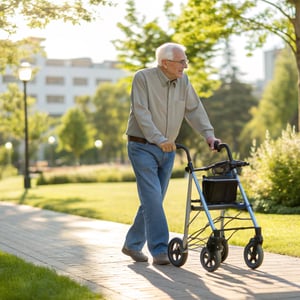
Explore how compact mobility tech enhances independence and quality of life for seniors, making daily activities more accessible and enjoyable.
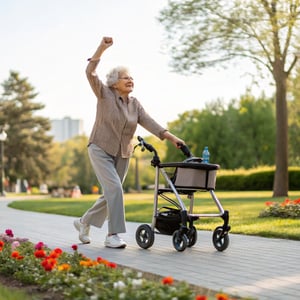
Discover why seniors are opting for sleek mobility devices over traditional walkers, enhancing their independence with style and functionality.

Discover the 2025 Cadillac CT4, where thrilling performance meets luxury, featuring advanced safety, elegant interiors and powerful engine options.

The 2025 Lexus RX redefines luxury SUVs with advanced tech, safety features, and a focus on comfort for an unparalleled driving experience.

Discover how to access cosmetic dentistry grants to afford procedures and achieve the smile you desire without financial strain.

Discover the 2026 GMC Acadia, a midsize SUV that offers exceptional comfort, technology, and versatility for families and adventurers alike.

Explore the 2025 Genesis GV80, a luxury SUV that combines Korean heritage with innovative technology and comfort for an unparalleled driving experience.

Discover the 2025 Chevy Tahoe: a blend of power, luxury, and versatility in a family-friendly SUV with remarkable performance and tech features.

Discover a quick five-minute mop routine to keep your floors spotless and fresh daily, ensuring a cleaner home with minimal effort.

Discover classic toys from your childhood that could be worth surprising amounts today. Explore valuable toys and collectibles.

Discover 7 rare Christmas ornaments that could be worth a fortune, from Shiny Brite to vintage treasures, and learn how to spot valuable pieces.

Discover the essential items hiding in your fridge that should be thrown away now. Learn about food safety and kitchen hygiene tips to ensure your health.

Discover 8 clever menu tricks that restaurants use to influence your dining choices and enhance your eating experience.
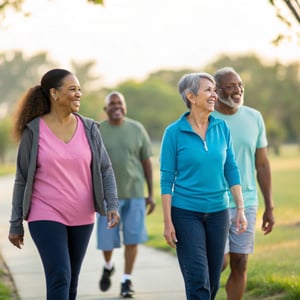
Walking just 15 minutes a day can boost your health, enhancing cardiovascular function and mental clarity. Discover its numerous benefits.

Discover three affordable lift chairs that can arrive before Christmas, ensuring comfort and support for you or your loved ones during the holidays.

Explore the 2025 changes to Medicare drug coverage, focusing on affordability, new payment plans, reduced premiums, and important updates for seniors.

Learn about angioedema's symptoms, causes, and treatments in 2025 to manage this condition effectively and improve quality of life.

Discover top gadgets recommended by tech experts to simplify your everyday life and enhance your daily routine with innovative technology.

Discover why the 2026 Buick Envision excites drivers with its revamped design, advanced technology, and commitment to safety and comfort.

A heart-healthy diet can be both delicious and nutritious, featuring foods like olive oil, fatty fish, colorful fruits and vegetables, and whole grains that support cardiovascular health while providing flavorful meals. Incorporating heart-friendly foods such as nuts, dark chocolate, and lean proteins into your eating pattern, alongside lifestyle habits like exercise and stress management, can significantly enhance your heart health without sacrificing taste.

Effectively organizing daily medications can reduce stress and enhance adherence for individuals managing multiple prescriptions; strategies include using pill organizers and digital solutions like apps and smart dispensers, linking doses to daily routines, and seeking support from healthcare providers and loved ones.

Incorporating simple desk stretches, such as neck rolls, shoulder shrugs, and seated spinal twists, can help alleviate tension, improve circulation, and boost energy levels for desk workers, emphasizing the importance of regular movement breaks to counteract the health effects of a sedentary lifestyle.
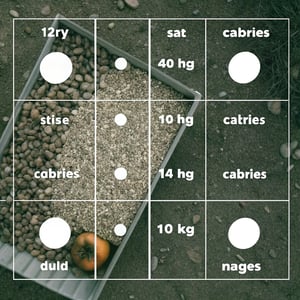
Understanding nutrition labels is crucial for making informed food choices; focus on serving sizes, calories per serving, and key nutrients such as fats, carbohydrates, and protein, while using the % Daily Values (%DV) to assess how a product contributes to a daily diet. Be cautious of ingredient lists for added sugars and processed elements, and rely more on the labels rather than front-package health claims when selecting healthier food options.

Vitamin D deficiency, especially prevalent in adults over 65, can manifest as persistent fatigue, bone and muscle pain, mood changes, slow wound healing, and frequent infections, making it crucial to monitor levels through a blood test and address any deficiencies with proper supplementation, sunlight exposure, and dietary adjustments.
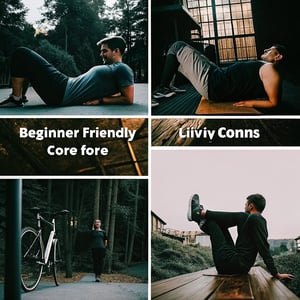
Strengthening your core with basic exercises like modified planks, bird dogs, glute bridges, modified dead bugs, and seated rotations can be done anywhere without equipment, focusing on form and gradual progression over 2-3 weekly sessions to improve posture, reduce back pain, and enhance overall stability.

Proper home lighting is essential for safety as it helps prevent accidents, particularly falls, deters intruders, and supports the wellbeing of residents, including those with mobility challenges or dementia, by enhancing visibility and comfort through strategic lighting in key areas like stairways, hallways, and night pathways, and incorporating smart lighting technology.

To manage winter joint pain, especially in seniors, engage in gentle indoor exercises, apply heat therapy, and incorporate anti-inflammatory foods like fatty fish and berries into your diet, while also ensuring proper hydration, maintaining joint warmth with layered clothing, and selecting supportive footwear to prevent falls.

Proper hydration is crucial during the summer months to prevent dehydration and related health issues. To stay hydrated, drink water regularly based on your body size, activity, and weather conditions; consider alternatives like coconut water, herbal teas, and water-rich foods; and pay special attention to seniors who face unique hydration challenges.
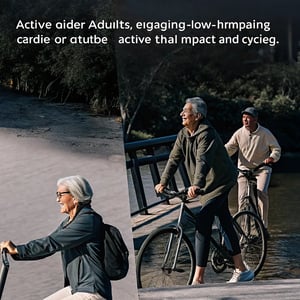
Low-impact cardio exercises are increasingly favored by seniors over 50 due to their joint-friendly nature and effective cardiovascular benefits, making activities like water aerobics, cycling, and walking ideal for maintaining fitness without the stress high-impact workouts can cause, which supports overall health, including weight management and metabolic health, while enhancing sustainability and enjoyment in fitness routines.

Staying hydrated is crucial for maintaining healthy skin, as water supports elasticity, nutrient delivery, and cellular functions, while consistent hydration helps prevent signs of aging and keeps the skin looking radiant. To enhance skin hydration, drink sufficient water, consume water-rich foods, use moisturizing products with humectants, and consider environmental factors like sun exposure and humidity.

The glycemic index (GI) ranks foods based on their impact on blood sugar levels, but it's important to consider the glycemic load, which accounts for both the quality and quantity of carbohydrates, as well as factors like food combinations, preparation, and portion sizes, to manage blood sugar effectively and make informed dietary choices. For practical application, focus on eating whole foods, balance meals with protein and fiber, and consult reputable sources for GI values, while keeping in mind that GI is just one aspect of a food's nutritional profile.

Maintaining proper posture is crucial for spine health, as poor posture can misalign the spine, interfere with nerve function, potentially lead to chronic pain, and even affect mental wellbeing; to improve posture, incorporate lumbar support, take movement breaks, strengthen core muscles, and consider professional evaluation.

Music therapy, a clinical practice involving musical interventions, effectively addresses physical, emotional, cognitive, and social needs by engaging various brain areas and enhancing dopamine production, thereby benefiting conditions like anxiety, depression, ADHD, and aiding in physical rehabilitation and cognitive enhancement. Incorporating music into daily life through dedicated listening times and active music-making can harness its therapeutic benefits, while ongoing research and advocacy are enhancing its accessibility and application in diverse health conditions.

Engaging in mentally stimulating hobbies, like learning a musical instrument, language, gardening, arts and crafts, or digital photography, can enhance cognitive health by building neural pathways, delaying cognitive decline, and improving focus, creativity, and problem-solving abilities, particularly as we age.

Iron deficiency is common and can cause fatigue, irritability, and worsen symptoms of depression and anxiety; to boost iron levels, include iron-rich foods like lean beef, lentils, and spinach in your diet, pair them with vitamin C for better absorption, and consider testing if you experience persistent fatigue or other symptoms.

Healthy sleep habits are crucial for seniors to maintain mental clarity and overall health; incorporating a consistent bedtime routine, optimizing one’s sleep environment, understanding sleep cycles, and adjusting naps and daily habits can significantly enhance sleep quality and cognitive function in older adults.

Gentle yoga is a beneficial exercise for individuals over 50 to improve flexibility, strength, and balance, with a recommended focus on regular, shorter sessions rather than intense, sporadic workouts; modifications like seated poses and twists protect joints while still offering mobility benefits, and consulting a healthcare provider is advised before beginning any new exercise routine.
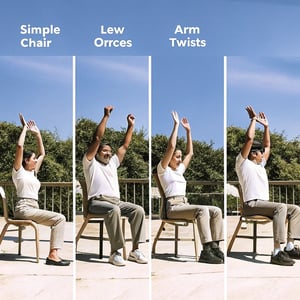
Chair exercises improve circulation and are beneficial for seniors, office workers, and travelers with mobility concerns by engaging muscles to help pump blood back to the heart. Incorporating simple movements like ankle circles and seated leg extensions can mitigate the risks of poor circulation, while additional habits such as staying hydrated and taking standing breaks enhance these benefits.

Deep breathing exercises can effectively reduce stress and anxiety by activating the parasympathetic nervous system, lowering cortisol levels, heart rate, and blood pressure, and improving mental clarity; incorporating techniques like the 4-7-8 method and box breathing into daily routines can enhance overall well-being and provide immediate calm.

A nutritious lunch consisting of protein-packed salads, balanced grain bowls, and energy-boosting foods like eggs, avocados, and berries can prevent afternoon energy crashes, while staying hydrated and incorporating post-meal movement can enhance focus and productivity throughout the day.

Incorporating foods like dark leafy greens, orange vegetables, fatty fish, nuts, and berries into your diet can help maintain eye health by providing essential nutrients like lutein, zeaxanthin, omega-3s, and vitamins A and C, which support vision, reduce oxidative damage, and prevent age-related eye conditions such as macular degeneration and cataracts.
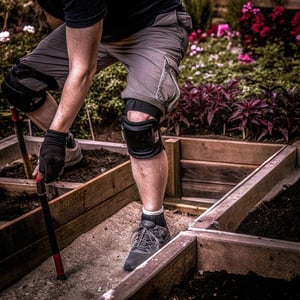
Gardening can pose risks to joints and balance, particularly for seniors, but by using ergonomic tools, taking regular breaks, and employing strategies such as raised beds and proper footwear, one can minimize strain and enhance safety. Incorporating anti-inflammatory foods, practicing balance exercises, and using adaptive tools can also help maintain an enjoyable and pain-free gardening experience.
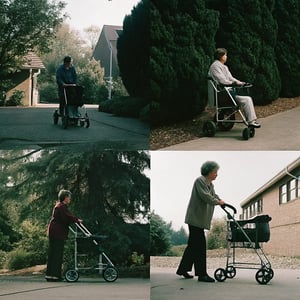
Small mobility aids, such as canes, grab bars, and kitchen tools, can greatly enhance independence and quality of life for seniors by addressing challenges in mobility, strength, and balance, while also allowing them to safely age in place and maintain personal dignity. Consulting healthcare professionals and utilizing funding resources can help customize and affordably acquire these aids.
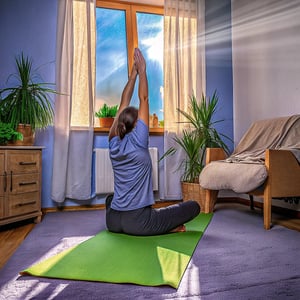
Stretching in the morning helps to "wake up" the body's systems by increasing heart rate, improving blood circulation, and enhancing muscle flexibility, making it an essential component of maintaining long-term mobility and preventing injuries; establishing a consistent, gentle stretching routine tailored to individual preferences can also promote mental calmness and boost overall well-being.

Walking for 30 minutes daily offers numerous health benefits, including improved cardiovascular health, weight management, and enhanced mood and cognitive function. Consistent walking can lower blood pressure, improve sleep quality, reduce symptoms of depression and anxiety, and provide flexibility in fitness routines, with the added advantage that even shorter walks throughout the day offer similar benefits.

Persistent fatigue can be influenced by factors such as poor sleep quality, hidden nutritional deficiencies, dehydration, stress, a sedentary lifestyle, and underlying medical conditions; addressing these issues through consistent sleep patterns, stress management, hydration, a balanced diet, and regular exercise can improve energy levels. If lifestyle changes do not alleviate fatigue, consulting a healthcare provider is advised to identify and treat potential underlying causes.
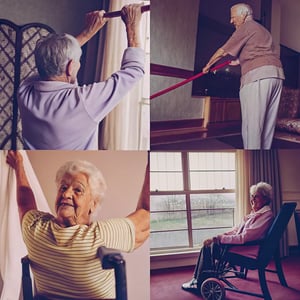
Regular balance and strength exercises are crucial for seniors to combat muscle mass loss and improve stability, thus reducing the risk of falls; seniors should aim for 150 minutes of moderate aerobic activity weekly, with strength and balance exercises incorporated 2-3 times per week, and always consult a healthcare provider before starting a new routine.
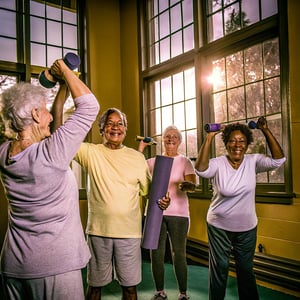
Regular balance and strength exercises, such as single-leg stands, heel-to-toe walks, and resistance training, are vital for seniors to counteract muscle loss, improve stability, and maintain independence, while also incorporating home safety, medication reviews, vision checks, and proper footwear to prevent falls.

Safe shoes play a crucial role in preventing falls among seniors by providing proper fit, non-slip soles, and support, which enhance balance and stability, helping to maintain independence and reduce injury risks.

As skin ages, it becomes drier, thinner, and less elastic due to decreased oil production and collagen; therefore, selecting the right moisturizer with key ingredients like ceramides, hyaluronic acid, glycerin, and peptides, and opting for creams over lotions especially in dry climates, can effectively address these changes and enhance skin hydration and elasticity.
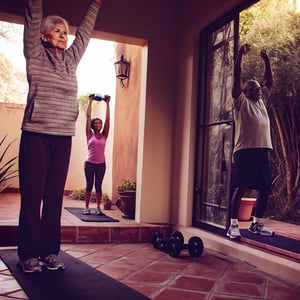
Seniors are enhancing their balance and strength through innovative approaches like integrating mindfulness with physical training, engaging in specialized exercises such as Tai Chi and backward walking, and utilizing modern stability aids and home adaptations to support independent living while mitigating fall risks.

Morning bike rides, when approached as intentional rituals rather than mere exercise, can enhance mental clarity, mood, and resilience for the day by promoting benefits like improved decision-making, better sleep, and reduced stress levels. By setting intentions, choosing mindful routes, and incorporating breathing techniques, these rides can transform the transition between sleep and daily demands into a powerful, positive experience.

To start a sustainable cycling habit, focus on using the right equipment, begin with short and manageable rides, integrate cycling into existing routines, and find community support for motivation, while being prepared to adapt to challenges such as weather conditions and time constraints.

Biking to work offers numerous benefits beyond financial savings, including improved physical and mental health by integrating exercise into daily routines, reducing the risk of diseases like cardiovascular issues and cancer, decreasing stress levels, enhancing mood, and contributing to environmental sustainability through reduced carbon emissions. To start biking safely, plan a suitable route, invest in necessary safety gear, and adopt a flexible commuting routine to suit your lifestyle and weather conditions.

Starting your day with a morning bike ride can enhance wellness by boosting mood, productivity, and mental clarity, thanks to endorphin release, reduced cortisol levels, and improved metabolic rate. Establishing a consistent routine involves preparing the night before, starting with short distances, and adapting slowly, while the physical activity sets a positive tone for the day, improves cognitive function, and helps manage energy levels effectively.

Cycling provides significant mental health benefits in addition to physical fitness, as regular cycling can reduce anxiety, depression, and stress levels due to the release of endorphins, the meditative flow state it induces, and opportunities for social interaction. To gain these mental health benefits, consistent cycling—ideally 150 minutes of moderate activity per week—is recommended, and even short rides can lead to immediate mood improvements.

Integrating cycling into your daily routine can significantly improve your physical and mental health by enhancing cardiovascular fitness, strengthening muscles, reducing stress, and supporting weight management, all while being gentle on joints; starting with just 10 minutes a day and gradually increasing your practice can help you form lasting habits. Consider incorporating cycling as part of your commute or daily activities for convenience and optimal time management, and ensure to equip yourself with proper gear and route planning for safety and efficiency.

Biking to work offers practical transportation alongside health benefits, and selecting the right bike and gear, ensuring proper visibility and road positioning, mastering riding techniques, and establishing a comfortable routine can make commuting smooth and enjoyable. Regular cycling can improve cardiovascular and mental health, and adopting a habit with community support can enhance motivation and enjoyment.

Weekend cycling has gained popularity among urban professionals due to its physical, mental, and social benefits, with regular rides improving cardiovascular fitness, reducing stress, and fostering community connections. As cities become more bike-friendly, professionals integrate cycling into their weekends, using strategies like early morning rides and joining cycling groups, all while handling practical challenges such as time management and gear storage.